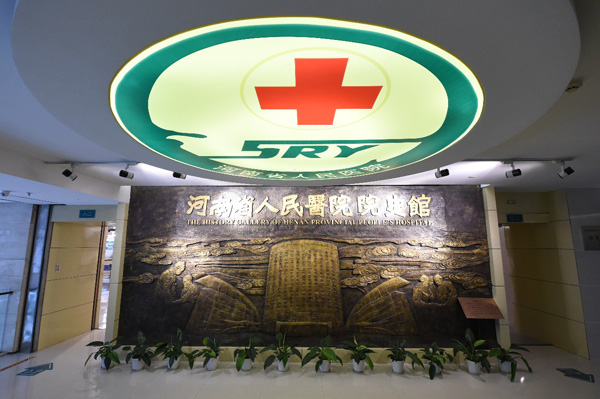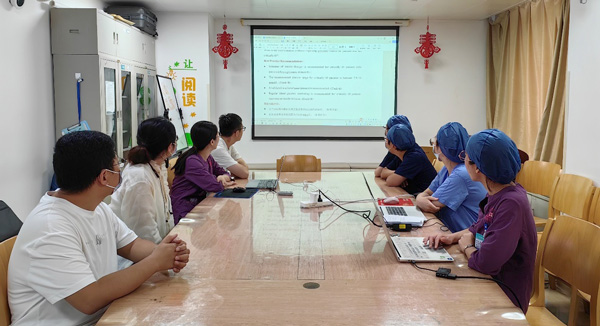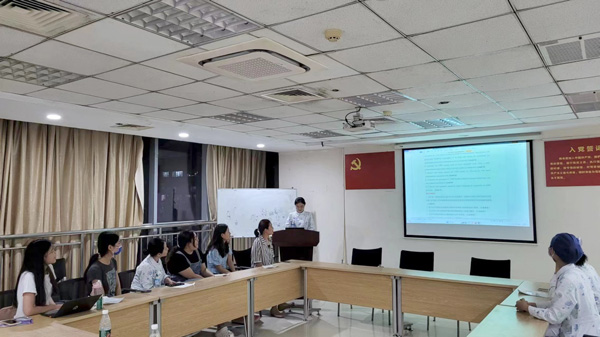Same World, Same Evidence, Same Opportunity: Action in Henan, China
Henan, one of the cradles of Chinese civilization, is an important agricultural province in central China with over 3,200 years of recorded history. It has a population of nearly 100 million, ranking the third most populous province in China. Living and working in such a large region means that there are great demands on the healthcare sector. Consequently, medical equity in Henan represents a large development space with numerous gaps.
In China, third-level grade-A hospitals represent high-quality medical resources. Almost half of these hospitals are located in eastern China, while less than 30% are in the central and western regions. In addition, in the central region, there is not only a lack of doctors per capita, but also a lack of nurses. The average number of registered nurses per 1,000 people in the central region is lower than in the eastern region, and this ratio is also less than the western average. Moreover, Henan ranks near the bottom in terms of population education level compared with other regions in China. This means that the patients’ education level is relatively low compared with other regions. Given this situation, providing patients with the same high-quality care as in other areas is a key challenge for nurses in Henan. Evidence-based nursing is one approach that may enable nurses to manage the explosion of new literature and technology, ultimately resulting in improved patient outcomes.
Our hospital, Henan Provincial People’s Hospital, has more than 5,500 beds and provides medical care to around 3.36 million outpatients each year, supported by a team of over 3,700 nurses. We set up the Henan Evidence-Based Nursing Centre this year and successfully applied to become a JBI Affiliated Group, becoming the tenth JBI Collaboration Entity on the Chinese mainland. This is the first JBI Collaboration Entity situated in a public hospital in central China. After becoming a member of the JBIC, we had the same opportunity as other countries or regions to search and use manuals or evidence from the JBI EBP Database to improve patient safety and health outcomes in our province, which could help promote global, equity-centred and evidence-based practice.

This year, our hospital conducted two implementation projects following the JBI Manual for Evidence Implementation. The first project was conducted with diabetic patients in an Intensive Care Unit (ICU). About 50% of ICU patients have glycemic disorders that are associated with mortality rates and hospital length of stay. Good glycemic management is vital for ICU patients. We used a JBI evidence summary, recommended practice and evidence-based audit criteria as the basis for this project. The second project was conducted in the Department of Hematology and involved the evaluation of chemotherapy-induced peripheral neuropathy (CIPN) for patients with multiple myeloma. CIPN is a prevalent symptom and sign of peripheral nerve dysfunction that has a major impact on patients. Appropriate assessment is essential for symptom management. However, there is no standardised approach for assessing and diagnosing CIPN currently. Therefore, we conducted this project to improve clinical staff knowledge about CIPN assessment based on evidence from the JBI EBP Database.
Although these projects are not yet completed, we have gained many benefits thus far. Members of our centre received systematic training on JBI methodology, such as evidence searches of the JBI EBP Database and the use of the JBI SUMARI software. Members have also gained experience about evidence-based practice through learning about published projects in two JBI journals. In the past, most evidence-based nursing resources could only be accessed from large universities or colleges on the Chinese mainland, while just a few were from hospitals. As a centre located in a hospital, we now have the same access to JBI resources and opportunities. This promotes equity between different organisations, particularly in clinical settings. With these competencies, we anticipate being able to provide our patients with higher-quality, evidence-based care in the future.


In addition, during the preparation for application to JBI, and after joining, we had more opportunities to communicate and learn from existing JBIC entities in other Chinese regions. At the end of 2022, our hospital hosted a national continuous education workshop about knowledge transfer and evidence implementation. In this workshop, we invited experts from other JBIC entities, such as the Fudan Centre for Evidence-Based Nursing, Peking University Health Science Center for Evidence-Based Nursing, and Beijing University of Chinese Medicine Centre for Evidence-Based Nursing to share their ideas, projects and experiences about using JBI resources and getting evidence into practice. Our centre also conducted a mentorship project with Peking University Health Science Center for Evidence-Based Nursing. Experts from this centre guided and supervised our production of systematic reviews. Finally, we participated in an evidence implementation project for the management of nausea and vomiting in chemotherapy patients, cooperating with other JBIC entities in the Asian region. We actively communicate and coordinate with organisations in other regions with better medical resources, attempting to reduce regional inequalities and provide people in Henan province with the same high-quality care as in other areas.
Our goal is to provide the same high-quality care as in other areas. Evidence-based nursing is the best way to achieve this goal, and joining JBI has helped us to achieve this goal more efficiently and effectively. The equal access to JBI resources, the equal opportunities for learning that JBI provides and the equal channels of JBI communication have already increased our professionalism in evidence-based nursing. In the future, we believe our hospital will continue promoting evidence-based practice in central China while decreasing the imbalance of regional medical resources in our province. This will be possible largely thanks to the advantages of the fair and open approach afforded to us by JBI and the JBI Collaboration.
Disclaimer
The views expressed in this World EBHC Day Blog, as well as any errors or omissions, are the sole responsibility of the author and do not represent the views of the World EBHC Day Steering Committee, Official Partners or Sponsors; nor does it imply endorsement by the aforementioned parties.
